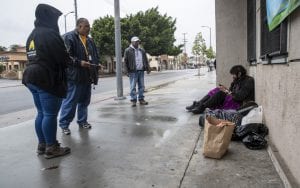 The novel coronavirus, COVID-19, is affecting every American and people all over the world, but it does not affect everyone equally. The more than 500,000 Americans who are homeless are especially vulnerable—due to age, lack of access to health care, underlying medical conditions, and lack of access to information and news—and also pose a risk in terms of continuing to spread the virus.1
The novel coronavirus, COVID-19, is affecting every American and people all over the world, but it does not affect everyone equally. The more than 500,000 Americans who are homeless are especially vulnerable—due to age, lack of access to health care, underlying medical conditions, and lack of access to information and news—and also pose a risk in terms of continuing to spread the virus.1
Outreach workers for homeless agencies and nonprofits across the country are attempting to spread the word about the effects of the COVID-19 pandemic among the nation’s homeless population. However, they are rarely able to offer hygiene supplies or other necessities along with the news. The scarcity of supplies, such as hand sanitizer, masks, and tests, is impacting many Americans, but it can affect homeless people even more deeply, as they are often the last to receive such necessities in normal times.2
Currently, it is mayors and city government officials who are largely addressing the crisis among the homeless population. Jersey City, for example, is offering showers, meals, and hygiene kits to its homeless population. “We have witnessed how COVID-19 has had a devastating impact around the world on all of us, but when you think of those who have the least in society, they are even more vulnerable during this crisis,” said Jersey City Mayor Steven Fulop.3
Other cities have not been as prepared. In Houston, for example, when a homeless man tested positive for COVID-19, he was released back onto the streets before city officials, charitable organizations, and homeless advocates could find him a shelter.4 Other cities are also struggling to address the needs of the homeless population. In many major cities, organizations that serve the homeless rely on volunteers who are not willing or able to work during the pandemic.5
The state of California, which has the largest homeless population of any state, is primarily focused on finding shelter and providing space for quarantining individuals who might be sick.6 Governor Gavin Newsom explained his state’s aggressive actions in this way: “Helping these residents is critical to protecting public health, flattening the curve, and slowing the spread of COVID-19.”
Discussion Questions
- Why do you think homeless people are so vulnerable to the spread of this virus?
- How should state and local governments address the spread of the virus among the homeless population?
- How high a priority should protecting the homeless population be? Why?
- Should the federal government do more & take steps to help states or to support the homeless population?
- Do you think governments do enough to protect or assist homeless people? Why or why not?
- Do you think shelter is a human right? Explain your reasoning.
Featured Image Credit: Brian van der Brug; Los Angeles Times
[1] Washington Post: https://www.washingtonpost.com/national/its-too-many/2020/03/21/7f2469d0-6bb1-11ea-b313-df458622c2cc_story.html
[2] Los Angeles Times: https://www.latimes.com/homeless-housing/story/2020-03-22/coronavirus-pandemic-homeless-outreach-shelters
[3] ABC 7 New York: https://abc7ny.com/society/jersey-city-offering-showers-meals-hygiene-kits-to-homeless/6045739/
[4] Houston 11: https://www.khou.com/article/news/health/coronavirus/homeless-man-who-tested-positive-for-covid-19-at-houston-hospital-released-back-onto-streets/285-394a71c2-7791-40e1-8ce7-80775db55fb5
[5] NBC Dallas Fort Worth: https://www.nbcdfw.com/news/coronavirus/homeless-services-in-dallas-pushed-to-limits-due-to-coronavirus/2337482/
[6] The Hill: https://thehill.com/changing-america/respect/poverty/488661-california-takes-precautions-to-keep-homeless-population
[7] Ibid.
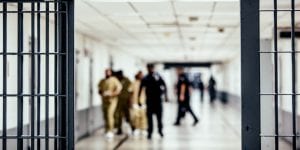 In the face of the spreading COVID-19 pandemic, government officials and medical experts are calling on people all over the world to practice social distancing.1 In general, this means canceling events and gatherings, avoiding large groups and crowds, and, when possible, staying home.
In the face of the spreading COVID-19 pandemic, government officials and medical experts are calling on people all over the world to practice social distancing.1 In general, this means canceling events and gatherings, avoiding large groups and crowds, and, when possible, staying home.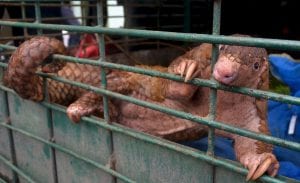 The COVID-19 (coronavirus) outbreak is believed to have started at a wildlife market in Wuhan, China, in December 2019. It is unclear which species transferred the virus to humans, but scientists largely agree on the point of origin.1 The 2002 outbreak of SARS, another type of coronavirus, began under similar circumstances.2
The COVID-19 (coronavirus) outbreak is believed to have started at a wildlife market in Wuhan, China, in December 2019. It is unclear which species transferred the virus to humans, but scientists largely agree on the point of origin.1 The 2002 outbreak of SARS, another type of coronavirus, began under similar circumstances.2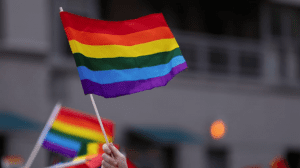 In February, Representative Ro Khanna (D-Calif.) introduced the Gender Inclusive Passport Act (H.R. 5962) in the House of Representatives. The legislation currently has 25 cosponsors, all of them Democrats.1 If the bill becomes law, it would create a third gender designation on U.S. passports—unspecified (X)—to join the existing designations of male (M) and female (F).2
In February, Representative Ro Khanna (D-Calif.) introduced the Gender Inclusive Passport Act (H.R. 5962) in the House of Representatives. The legislation currently has 25 cosponsors, all of them Democrats.1 If the bill becomes law, it would create a third gender designation on U.S. passports—unspecified (X)—to join the existing designations of male (M) and female (F).2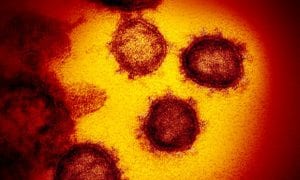 Public health officials first encountered COVID-19, popularly called the coronavirus, in Wuhan, China, in December 2019. Thus far, the virus has infected over 89,000 people, killing more than 3,000.1 In the United States, there have been more than 100 cases in 15 states; at least six people have died, all of them in Washington state.2 The Trump administration, the Centers for Disease Control and Prevention, and the World Health Organization insist that the threat of the coronavirus is still manageable, all the while taking precautions to attempt to contain the outbreak.
Public health officials first encountered COVID-19, popularly called the coronavirus, in Wuhan, China, in December 2019. Thus far, the virus has infected over 89,000 people, killing more than 3,000.1 In the United States, there have been more than 100 cases in 15 states; at least six people have died, all of them in Washington state.2 The Trump administration, the Centers for Disease Control and Prevention, and the World Health Organization insist that the threat of the coronavirus is still manageable, all the while taking precautions to attempt to contain the outbreak.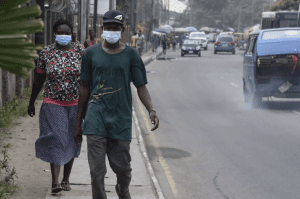 The outbreak has also raised another important equity issue: the ability to take time off work. It is recommended that people who are feeling sick or are worried that they may have been exposed to the coronavirus stay home from work or school and avoid public spaces.7 However, doing so is not always possible for hourly employees in the service industry, such as restaurant and retail workers.8 This has called attention to issues such as paid time off9 and employment security.10
The outbreak has also raised another important equity issue: the ability to take time off work. It is recommended that people who are feeling sick or are worried that they may have been exposed to the coronavirus stay home from work or school and avoid public spaces.7 However, doing so is not always possible for hourly employees in the service industry, such as restaurant and retail workers.8 This has called attention to issues such as paid time off9 and employment security.10






